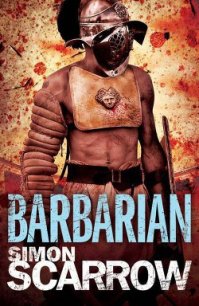Young bloods - Scarrow Simon (библиотека электронных книг txt) 📗
Over the next three days Napoleon made several more attempts to negotiate, but the garrison fired on anyone who dared show his face in front of the citadel walls. The artillery piece mounted on the north bastion ceased fire once it had ruined the topmost floor of the Jacobin Club, and then an uneasy stillness and silence hung over the quarter of the town closest to the citadel. Elsewhere, the people of Ajaccio ventured warily on to the streets and bought only what was necessary before hurrying back to the shelter of their homes. It was soon clear to Napoleon that there was little support for the battalion's attempt to seize the citadel. Once the bombardment of the Jacobin Club had ceased a small crowd of townspeople had gathered to shout abuse at those still inside, and hurl stones at any face that appeared at one of the already shattered windows.
Then on the evening of the third day, several warships were sighted entering the Gulf of Ajaccio. On the final tack into the harbour the gunports opened and the ships anchored, with their muzzles trained on the town. Under the cover of the ships' batteries, boats began to ferry soldiers ashore and as dusk closed in around Ajaccio the men of a regular line regiment marched into the boulevard and halted in front of the gates of the citadel.
Colonel Quenza had emerged from the cathedral as soon as he had word of the approach of the warships and had gone to find his subordinate. Now both officers warily advanced towards the officer in command of the relief force. He was a regular army major. He strode forward to confront the commanders of the volunteer battalion.
'Colonel Quenza?' He saluted, and turned towards Napoleon. 'And you must be Lieutenant Colonel Buona Parte?'
Napoleon nodded, and the major turned his attention back to Quenza. 'I have instructions to order your men to lay down their arms immediately and return to their homes. The battalion is dissolved by authority of the Governor of Corsica. Failure to comply with the order will be met with force. Sir, unless you are prepared to have the blood of hundreds of your countrymen on your hands I suggest you do exactly as I request.'
Quenza's shoulders sagged and he gave a pathetic nod.'I'll give the order.'
'Thank you, sir,' the major replied crisply.'Now I have business to attend to with the other officer.You may go, sir.'
Quenza darted a curious look at Napoleon and then turned and hurried away.
The major reached inside his coat and drew out an envelope. 'Since the volunteer battalion no longer officially exists, your rank of lieutenant colonel no longer applies. In which case I address you as Lieutenant Buona Parte of the Regiment de la Fere, and you will stand to attention before a superior officer.'
Napoleon stiffened his back and stood erect, boots together, arms straight at his sides. 'Yes, sir.'
'This message is for you, from the War Office. It arrived in Bastia last week. It contains a travel permit. You have exceeded your period of leave by five months.You are therefore required to present yourself to the Minister of War in Paris. One of those ships is leaving for Marseilles first thing tomorrow.You had better be on it, or I will have you arrested and charged with desertion. Do you understand, Lieutenant Buona Parte?'
'Yes, sir.' Napoleon tried to keep his voice from trembling as he continued. 'Have you any idea what's in store for me?'
The major smiled. 'Certainly. Given that you are officially absent without permission, and now you are responsible for several deaths in what looks to me like an act of treason, I'd say the Minister for War will have little choice but to have you shot.'
Chapter 61
Paris, 1792
From the moment he arrived in the capital at the end of May Napoleon was astonished by the changes a mere year and a half had wrought on the city at the heart of the revolution. Realising that other nations would not permit France to adopt full-blooded democracy, the National Assembly had declared war on Austria in April. Before the month was out the army of General Dillon had been routed and the volunteer soldiers had murdered their general as they fled from the battlefield. As the coach had carried Napoleon by stages from Marseilles he had read news of further defeats, and the tense atmosphere in Paris was immediately apparent to him. As he headed towards the Pays Normande Napoleon stopped to read some of the posters that adorned every street corner. Most carried news of the latest regulations passed by the local commune. Others gave reports of the debates in the National Assembly. In every street men were hawking newspapers, and small crowds clustered round to read the latest news of the war. The last time Napoleon had been in Paris there had been only a handful of heavily censored newspapers, but now there were scores of publications, openly speaking for almost every political point of view – even for the rump of monarchists still struggling to persuade Parisians to return to the order of the old regime.
When he reached the hotel Napoleon discovered that the room rates had more than doubled since his last stay, and that no rooms were available. The owner explained that the deputies of the new National Assembly and their families and supporters had taken over most of the hotels in the city and there was a chronic shortage of accommodation. He suggested that Napoleon might like to try Monsieur Perronet on Rue de Mail, who was a friend and occasionally let rooms in his house to people who came on recommendation.
The Perronet residence was just off the Rue Saint-Honore, close to the Palais-Royal and the Tuileries. Monsieur Perronet was an engineer and kept an ordered house. He glanced through the note of recommendation, looked the young artillery officer over and beckoned him inside. The room he let to Napoleon was in the attic. It was small and comfortable, and the window looked over the rooftops towards the complex of palaces that made up the Tuileries.
Perronet nodded towards the window. 'If you listen carefully you might just hear the baying of wolves from time to time.That, or the members of the Assembly screaming for each other's blood.'
Napoleon smiled. 'Has it come to that?'
'Not yet, but it will.'The engineer shrugged wearily. 'The war is going badly, the price of bread is up and the mob is hungry to find someone – anyone – to blame for it all. So, citizen, you have chosen a fine time to visit Paris. Before I let the room to you, I have to ask something.' He looked embarrassed for a moment, and Napoleon gestured for him to continue. Perronet pursed his lips. 'Are you here to defend the King, or to oppose him? It's just that if you get involved in any trouble, I don't want the mob coming to my house looking for you. I have a young family, you understand. I have to make sure they are safe.'
'I'm not here to defend the King. I'm here to defend myself, Citizen Perronet. I give you my word, there'll be no trouble on my account.'
'Very well, you can have the room. Five sous a day. Ten if you want to be fed.'
'I'll just have the room, citizen.' Napoleon took out his money pouch, counted out enough for the first month and handed it over. He would have to be careful with the limited funds he had brought with him from Corsica. He would eat only when it was necessary. Monsieur Perronet counted the coins quickly, nodded, and left the room, closing the door quietly behind him.
As the engineer's footsteps descended the steep creaking staircase Napoleon went over to the window. He stood leaning his elbows on the sill, and stared out across the grimy walls and roofs of the French capital. The spectacle of a great city spreading out on all sides towards a hazy horizon filled him with excitement for a moment before his mind turned once more to the anxiety and uncertainty over his fate.




